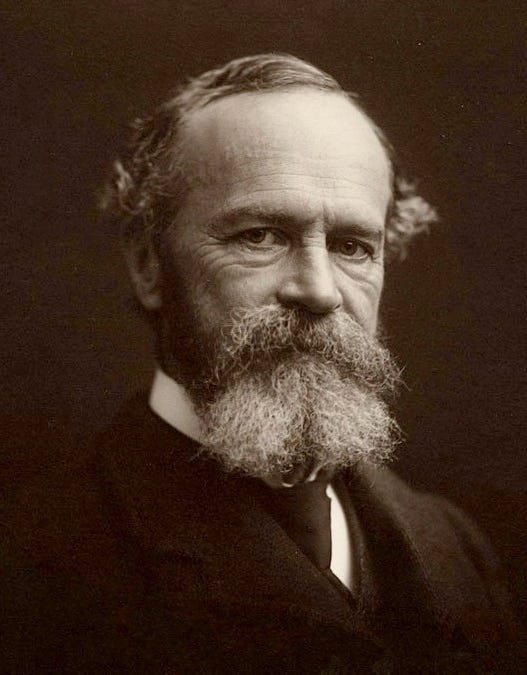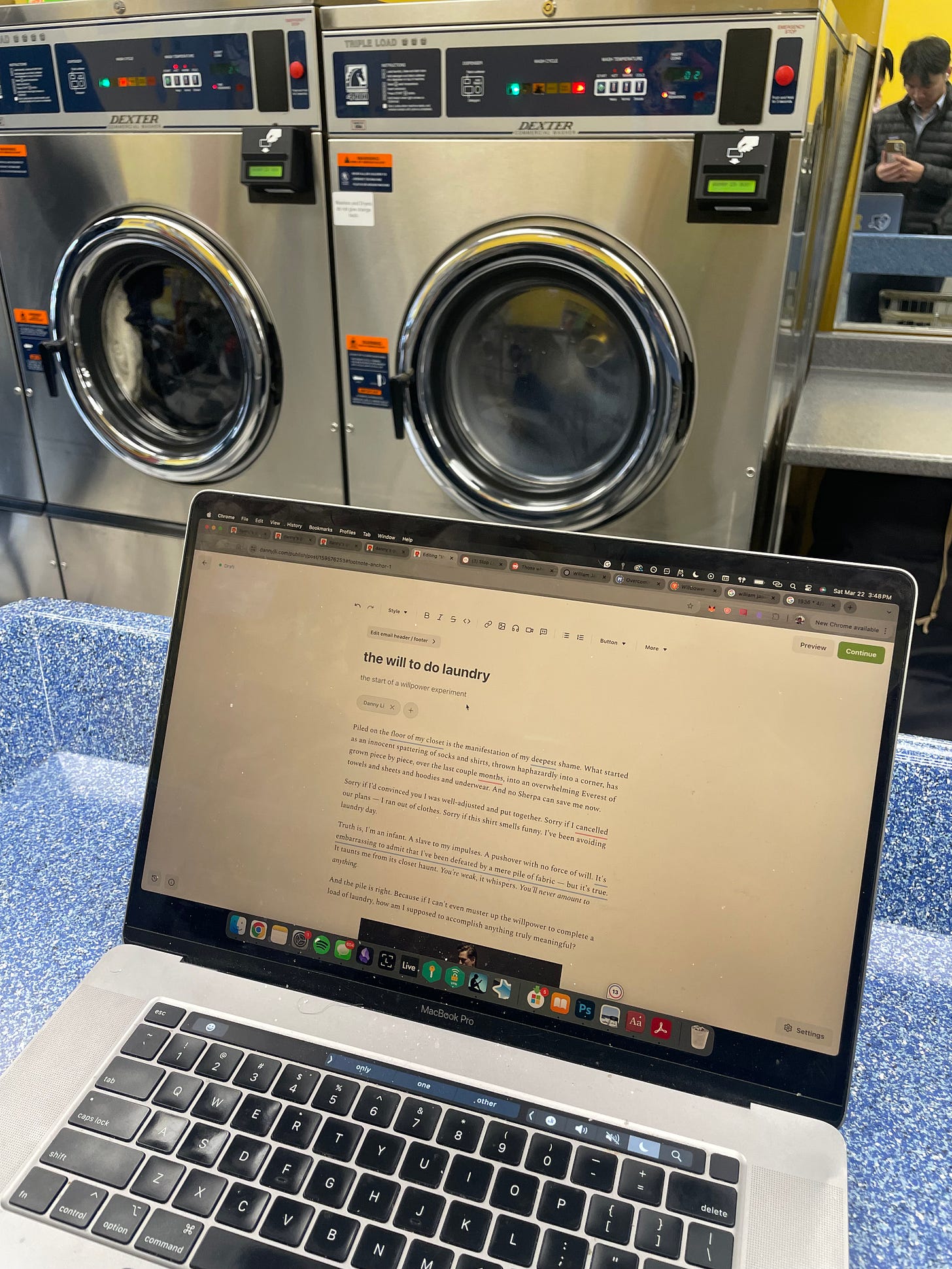the will to do laundry
avoiding my problems
Piled on the floor of my closet is the manifestation of my deepest shame. What started as an innocent spattering of socks and shirts has grown piece by piece, over the last few months, into an overwhelming Everest of towels and bedsheets and hoodies and underwear. And I have no Sherpa to save me.
Sorry if I led you to believe I was well-adjusted and put together. Truth is, I'm an infant. A slave to my impulses. A pathetic pushover who runs from his problems. And as embarrassing as it is to admit, I've been defeated by this pile of fabric. It taunts me from its closet haunt: You're weak, it whispers. You'll never amount to anything.
And the pile is right. Because if I can't even muster up the willpower to complete a load of laundry, how am I supposed to accomplish anything truly meaningful?
Seeking guidance, I visit the shrines of wise Self-Help Sages and esteemed Grindset Gurus™. Steven Pressfield explains that the root of my avoidance is fear. I believe it. David Goggins implores that I stay hard! and embrace suffering. I embrace Netflix instead. Andrew Huberman professes 5 research-backed biohacks to unblock my motivation. I’m only motivated to take a nap.1
I sit through sermon after sermon, but nothing lands. It’s like having all the answers to the exam and still failing — I know the solution is to just do it, but for some reason, I just can’t.
And day after day, the pile grows larger.
But just as the mountain of fabric threatens to swallow me whole, I stumble across a hint of salvation — the story of William James, father of American psychology.
At twenty-eight, William was depressed and suicidal, paralyzed by a similar sense of helplessness. But rather than succumb to despair, he decided to run an experiment: for one year, he would choose to believe in free will — to act as if he had control over his every action. Thus, he assumed complete responsibility for his life.
It was a turning point. Two years later, he rode that belief into a professorship at Harvard, where he laid the groundwork for our modern understanding of willpower.
He defined willpower as the conscious effort of attention, a force that could be soft and persuasive rather than rigid and oppressive. He described it as a muscle that could be strengthened, a habit built over time. Through sustained effort, he asserted, anyone could develop willpower.2
Even someone as hopeless as me.
I, too, wish to become a man of will.
I want to break the habitual, deep-rooted chains of avoidance. To become capable, responsible, and self-assured. To feel in control. To finally vanquish that snide, pungent pile of clothes inhabiting my closet.
That means I can’t keep running from my problems. After all, in the course of a meaningful life, there will always be grueling, tedious work and insufficient motivation. There will always be laundry.
So I take the first step.
William James wrote, "My first act of free will shall be to believe in free will."
Mine shall be to do laundry.
👻 what I’ve been up to:
If you haven’t noticed, we’ve rebranded! Originally I wanted to use the name ‘Danny’s Garden’ for an eventual album but figured it fit better here. Some concept sketches down below.
I’ve officially been writing on Substack for one month! Thank you for all the support. It’s way more than I ever expected and I’m incredibly grateful. Here’s to many more months ahead.
all jokes aside I have tremendous respect and admiration for these people.
belief + sustained effort = progress?? is this, once again, growth mindset in disguise??











How do you know what my bedroom looks like? xxxx love and feel this. let's all pray together for willpower to finally arrive for us
I love the way you put this! I too struggle with mustering the will for the mundane and regular.